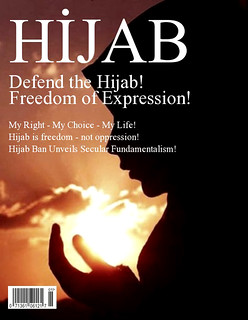Canadian journalist Eric Walberg has produced two very impressive works that between them cover most of what is politically relevant today: "Post-Modern Imperialism: Geopolitics and The Great Games", the games being those played on the world political chessboard, and "From Post-Modernism to Post-Secularism: Re-Emerging Islammic Civilization", both from Clarity Press.[tag]
Walberg admits that the internet made his task easier, but without a very thorough grounding in political theory and history, they could not have been written. Walberg who has a degree in economics from Cambridge and has lived in the Middle East, Central Asia and Russia, specializes in the Middle East. His Great Games are labelled GGI, pre-Russian revolution, GGII (the Cold War era) and today's on-going GG III, which he sees as a US-British-Israeli campaign for world dominance. Walberg shows globalizaion's brutality, and with theory to back him up, lays it squarely at imperialism's door.
The scope of this work is vast, but I have chosen one quote that is particularly relevant to current events. Since 2008, the European Union, built up painstakingly after two world wars devastated the continent, has been teetering on collapse, and I have often affirmed that it is a deliberate American policy to destroy that elaborate welfare state. Walberg's confirmation is stunning:
(Following World War II) the situation was dire for US strategists. With the overwhelmingly pro-communist world sentiment following the defeat--primarily by the Soviet Union--of the Nazis, it was very much touch and go. But Mackinder was not so worried, and anticipated the Cold War as not such a bad thing for the long term interests of the empire. He was more worried about a resurgent western Europe with the now reformed Germans as the engine of prosperity. He had read his Haushofer, remembered Rapallo, and saw the real threat to the Anglo-American empire not from a now devastated Russia, with a crude planned economy and a ruthless dictatorship, but from an independent Europe, which unless tied carefully to the US, could become the postimperial social democratic alternative to empire and come to terms with the Soviet Union, opening the Eurasian heartland to itself. He argued that western Europe, above all a resurgent Germany, would be the main challenge to post-war Anglo-American hegemony. It did not matter whether the Soviet Union was still friendly to Washington or a Cold War foe. What was important was to contain western Europe and keep it solidly in the US sphere of influence after 1945.6
When I looked up Walberg's books on Amazon, I found a new tool for the manipulation of the 99%. Elogious customer reviews were followed by a section I had never seen before, titled: "What Other Items Do Customers Buy After Viewing This Item?" One was a book by Zbignieuw Brezinski, another was by fellow neo-con Robert Kaplan, and a third (out of four) was published by Praeger, a conservative publishing house. What a clever way to steer readers away from progressive books!
As a natural sequel to "Great Games" and with the same post-modern slant, in "Reemerging Islamic Civilizaiton" Walberg documents both the history of Islam and its main players, by country, period and theme. As in Games, the illustrations and maps are exceptional, and the author's assertions are backed up by extensive references.
It is clear from the start that Walberg sees Islam as not so much better than other religions but better than Western civilization's destructive message, with respect both to humans and their environment. Reviewing Islam's present and past positions on economics, poliitics and nature, Walberg notes that while it is presented to contemporary Western publics as inherently violent, Islam has never built empires. (Currently, Iran is developing nuclear power for energy and medical use, however in its two thousand year history, Persia has never invaded another country, the eight year war with Iraq in the nineteen-nineties having been started by Iraq, with American help").
The most important - and least known - message of this book is Islam's emphasis on equality, both between classes and the sexes. While recognizing that women are at a disadvantage in contemporary Muslim society, Walberg cites Western female converts affirming that they like wearing the hijab because it protects them from lascivious male advances, and the fact that many emancipated women do convert would be incomprehen-sible if that were not the case.
With respect to political equality, Walberg notes: "Charity must be redefined as a right which the poor have on the wealthy, to be regarded as the latter's duty rather than reflecting their generosity. The intent is to try to overcome the divisions in society, not highlight the differences between haves and have-nots." (One of the 'pillars' of Islam is the obligation to do an act of charity every day, another obligaiton being to consider the effects one's actions will have on others.)
A entire chapter is devoted to Muhammad and Marx, but its main thrust 'The Dialectic Between Revelation and Reason' is less persuasive than the parts of the book that deal with Islam's revolutionary message itself. (Walberg fails to mention that Jean-Paul Sartre confessed to Shariati, the foremost leftist theoretician of the Iranian revolution, that if he believed in God he would be a Muslim, while emphasizing Michel Foucault's positive attitude toward Islam. After visiting Iran in 1978 the famous French philosopher (who was gay), foresaw that Islam would become a major political force in the world.)
(Note: You can view every article as one long page if you sign up as an Advocate Member, or higher).






